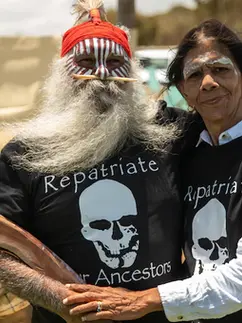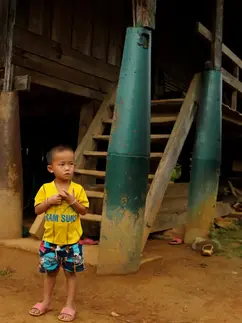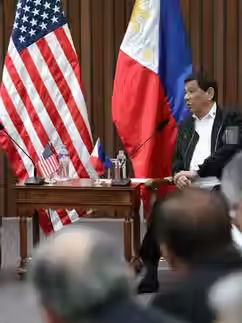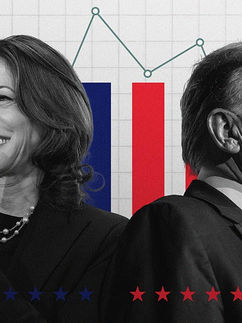Conclusion of Operation Barkhane: What does this mean for the future of the Sahel region?

Ezekiel Dobelsky
June 2021 marks another shift in the conflict engulfing the West African Sahel. French President Emmanuel Macron announced, to the surprise of both his European and African allies, that France would be halving its troops in the Sahel and thereby ending Operation Barkhane, a counter-terrorism operation that had been running since 2014. The French troops will be replaced by a significantly fewer number of troops from various EU nations and military bases will be closed in northern Mali. Instead, the focus will shift to the Liptako-Gourma region, on the border of Mali, Burkina Faso, and Niger.

The West African Sahel is a vast region, approximately the size of Europe. It is composed of five countries: Mauritania, Mali, Burkina Faso, Chad and Niger (Figure 1). At the beginning of the 20th century, it was under French rule. The region decolonised in the late 1950s and early 1960s. In recent decades, various nationalist insurgencies, extremist religious terror organisations, climate change, and authoritarian leaders, have all played a role in increasing instability and conflict in the region. Almost 7,000 civilians were killed in 2020 alone, and presently there are almost 2.4 million displaced people across the region. So what does Macron’s announcement mean for the Sahel, and the civilians who are caught up in the crossfires?
Context
The West African Sahel is the site of a long-term French foray into the region. Initially, France was invited in 2012 at the behest of the Malian government to hold off an imminent invasion of its capital by an array of Islamist militant groups. Operation Barkhane was the successor operation, launched in 2014.
The West African Sahel is considered an important region by European states, not just France. While France had a strong colonial presence in the region, the Sahel’s role as a smuggling and trafficking route presents a security threat for the whole EU. As EU Representative to the Sahel, Emanuela Del Re, explained a few months ago, the presence of extreme Islamist groups (such as affiliates of Al Qaeda and ISIS) is a security threat given the proximity to Europe. There is also a need to prevent the linkup between Boko Haram (based around Lake Chad) and the terror groups in the Sahel. Additionally, the Sahel has also developed into a major drug smuggling route.
The purpose of Operation Barkhane was counter-terrorism, and to hold off the insurgency that threatened the governments and civilians. Operation Barkhane was the military component of the overall approach to the Sahel, where the ultimate aim was and still is focused on building up local capacity in political, security, and development dimensions.
During Barkhane, France and other international actors and institutions have been attempting to build up local capacity to deal with threats. There has been a proliferation of regional institutions such as the G5 Sahel, the Sahel Alliance, and the Coalition for the Sahel. Simultaneously, there is a ‘security traffic jam’, as there are numerous government armed forces in the region to protect against the terrorist threat and stop inter-communal violence. The primary purpose of these institutions is to increase coordination and cooperation between the Sahel states, thereby ensuring efficient development whilst maintaining and building up self-sufficient security. This is encapsulated in the idea of the security-development nexus.
The Security-Development Nexus and its Limitations
The security-development nexus is the logic that security and development share a reciprocal relationship. According to its many proponents, positive and effective development leads to a reduced likelihood of war and conflict. At the same time, strong security increases the possibility and scope of effective development programs to exist.
The logic behind the nexus is best captured in this quote by the European Consensus on Development in 2005:
“Without peace and security...development and poverty eradication [is] not possible, and without development and poverty eradication no sustainable peace will occur.”
There are numerous criticisms of this nexus, which relate to its colonial history and how it has become reimagined in a postcolonial time. Regardless of academic criticism, this nexus is still extremely popular with states, international organisations, and NGOs. Importantly, it has been at the core of the EU’s strategy in the Sahel since 2011.
Examples of the security aspect of the nexus in the Sahel include the launch of the G5 Sahel Joint Force in 2017, as well as the EU military training missions run in Mali and Niger. The EU contributed EUR 76 million to the Joint Force in 2018. The Joint Force is supposed to build capacity, meaning local security forces are trained and equipped with the aim of ultimately holding their own and alleviating the need for outside forces.
However, the results of this capacity building are mixed. The G5 Sahel Joint Force has not scored a major victory against the insurgents. Indeed, the various terrorist groups seem to be growing from strength to strength, even as they are fighting each other.
Most worryingly, there have been accusations against government troops from all Sahelian countries for committing human rights violations in the name of counter-terrorism. In fact, a recent report indicates that government forces are a key contributor to the violence, are able to act with relative impunity, and in fact kill more civilians than extremist groups. France and the EU have not called for or made imperative any human rights protection measures in the G5 Sahel Joint Force.
This has led to a counterproductive counter-terrorism response and has fuelled further distrust of the government’s security apparatuses. However, as the priority is security, necessary reforms have not been undertaken.
Of course, this is not to say that there has been no development. The Sahel Alliance, for example, is running over 800 aid and development programs. But the effectiveness of these programs and their ability to provide a basis for supporting the government is undercut by the failures, atrocities, and abuses committed by the same government.
Where to from here?
The French and European presence in the Sahel is falling into the same traps as previous counterinsurgency campaigns: the reliance on local strongmen who dominate and subjugate the people they are supposed to protect. The leaders of the G5 Sahel are a composition of authoritarian dictators, and the average freedom rating for these countries, while not a perfect measure, is 37.4 out of 100. Support of these regimes, despite military coups, non-democratic activity and human rights violations, risks reinforcing the conditions that cause jihadism to grow, as local grievances and disputes are not adequately addressed. Numerous French airstrikes since 2013 have killed civilians, and the soft African government response does nothing to dispel fears of an overbearing European presence, reminiscent of colonial times. This blowback against Europe has already begun, with anti-French protests manifesting in early 2021. Such protests could escalate rapidly if the concerns underpinning them are not effectively addressed and will provide another recruitment space for anti-government forces.
The reorganisation of troops, while indicating a change in the security dimension in the Sahel, is not a shift away from the overall strategy. Now, with a more pan-European force to be deployed, maintaining a military presence could become more difficult if casualties occur. It is hard to imagine European leaders in nations such as Denmark and Latvia keeping soldiers in the region, withstanding domestic pressures, were there to be a number of casualties.
The security-development nexus approach does not appear to be changing. If the status quo remains and security is prioritised over actual reform and accountability, then the future of the Sahel is likely to be as bleak as ever.
Ezekiel Dobelsky completed his Master of International Relations from the University of Melbourne in 2020, to go with his undergraduate double degree of Arts & Economics from Monash University. He previously interned at EcoPeace Middle East, a regional NGO focused on environmental peacebuilding in Israel, Palestine and Jordan. He is currently an editorial assistant at E-IR, and teaches chess on the side.

















Comentários